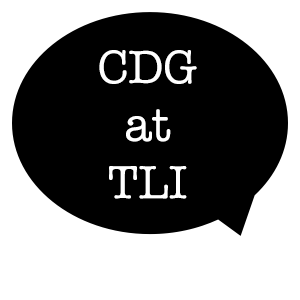Using AI and Drug Testing to Design Personalized Cancer Drug Combos

Curious Dr. George
Cancer Commons Editor in Chief George Lundberg, MD, is the face and curator of this invitation-only column

Noah Berlow, PhD
Chief Technology Officer at First Ascent Biomedical, Assistant Member at Children’s Cancer Therapy Development Institute
Advanced cancer treatment often involves combining multiple drugs. But with a huge number of possible combinations, it is difficult to know which mix might work best for each patient. Here, our Curious Dr. George asks two leaders to describe how the company First Ascent Biomedical is addressing this challenge.
Curious Dr. George: The U.S. Food and Drug Administration (FDA) has approved many thousands of drugs for marketing, including many hundreds of drugs for use in treating cancer. Some of these drugs are effective; many are not. Many cancers remain without effective therapies. The opportunity to combine FDA-approved drugs offers an additional potential treatment for people with cancer. Many—even most—such combinations have not been rigorously tested.
How does your tumor profiling technology attempt to alleviate that gap and provide hope to cancer patients through combination therapies?
Diana Azzam, PhD, and Noah Berlow, PhD: The development of combination chemotherapy regimens was one of the earliest revolutions in cancer care that led to improved outcomes across nearly every cancer type. The power of drug combinations has been established by decades of clinical data, which is why 25% of oncology clinical trials are designed around drug combinations. Combination therapies are valuable to pharma as well since drug combinations allow for development of new IP and build additional value around assets.
But the driving challenge is always who, which, and when. Who needs which combination, and when? Given that the FDA has approved over 200 cancer drugs, there are over 19,000 possible 2-drug combinations, over 1.3 million 3-drug combinations, and 64 million 4-drug combinations. Setting up 19,000 clinical trials across every cancer type to explore every 2-drug combination is an intractable clinical problem, much less 3- or 4-drug combinations. Correspondingly, finding the right combination for the right patient at the right time is a profoundly difficult problem—but one that our technologies are working to address.
Our approach to this problem is driven first and foremost by functional drug testing, the process of testing a variety of anti-cancer drugs on live cancer cells derived from the patient’s own tumor. This process allows us to identify which drugs are more likely to be effective on the patient’s tumor. The unique way we perform drug sensitivity testing allows us to rapidly test more than 100 cancer agents on the patient’s cancer cells with a median 7-day turnaround time from tissue receipt to return of drug sensitivity results—both for solid and hematological cancers. This is fast enough to support clinical decisions for patients, especially those who have exhausted standard-of-care treatment options.
Our process primarily tests single drugs to identify which drugs show potential, which is where our artificial intelligence/machine learning (AI/ML) comes into play. The AI/ML platform uses the drug sensitivity data—which drugs worked, and which did not—and the patient’s genomic profile to identify multivariate mechanisms driving drug sensitivity. By understanding those critical vulnerabilities, identifying drug combinations becomes a matter of matching FDA-approved, clinically available drugs to the tumor vulnerabilities. We can then use the AI/ML to inform combination design, which, alongside physician input on combinations of interest, guides follow-up combination drug testing. The AI/ML enables us to close the feedback loop in drug combination testing for any cancer patient.
The AI/ML right now is focused on building a deep understanding of an individual patient. As we continue to work with new patients and accumulate more data, we plan to leverage the same AI/ML to identify patterns of patient response within cancer populations to support the development of drug combination studies or even monotherapy trials for the right population. We can support new trial development from insights built on drug response data from direct testing of hundreds or thousands of cancer patients, paving the way for more combination therapies for more cancer types, with a better understanding of who will respond and why.
Dr. Azzam can be reached at dazzam@fiu.edu and Dr. Berlow at nberlow@firstascentbio.com.



